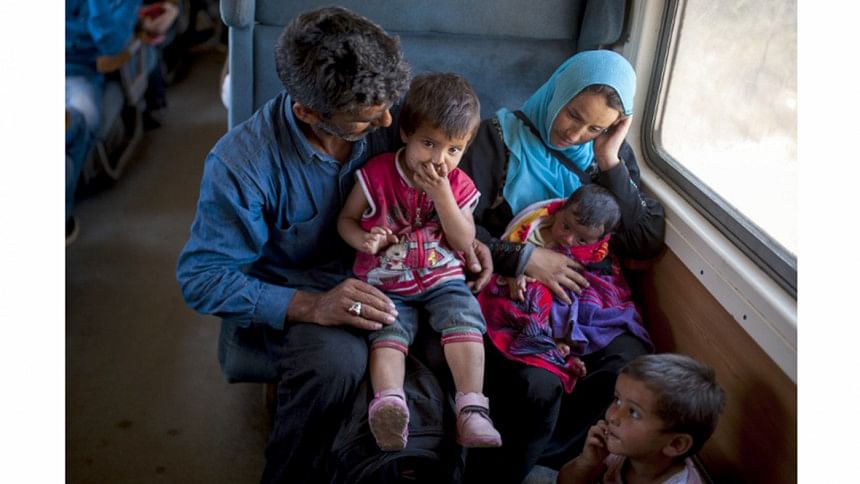Migrant crisis: Australia PM says stopping boats key for Europe

Australian Prime Minister Tony Abbott has said the refugee and migrant crisis in Europe is proof of the need for tough asylum policies.
Abbott told Australian media that the only way to prevent people dying at sea was to "stop the boats".
Australia detains any migrants trying to reach its shores by boat, and takes them to offshore processing camps to be eventually resettled elsewhere.
On Thursday, the New York Times described the policy as "brutal".
In an editorial, the newspaper said the "ruthlessly effective" policy was "inhumane, of dubious legality and strikingly at odds with the country's tradition of welcoming people fleeing persecution and war".
It said it would be "unconscionable" for European leaders to consider adopting similar policies, as Abbott has previously suggested.
Australia has not responded to the editorial, but on Friday Abbott said the image of Syrian three-year-old Alan Kurdi, who died trying to reach Greece by boat with his family, was "very sad".
"If you want to stop the deaths, if you want to stop the drowning you have got to stop the boats," he told ABC Radio.
"Thankfully, we have stopped that in Australia because we have stopped the illegal boats."
On Thursday, Abbott angered Australian Jewish groups by saying the so-called Islamic State (IS), from which many of the migrants to Europe are fleeing, was worse than the Nazis.
"The Nazis did terrible evil, but they had a sufficient sense of shame to try to hide it," he told Sydney Radio 2GB.
But IS militants, he said, "boast about their evil, this is the extraordinary thing".
The Executive Council of Australian Jewry Robert Goot said the comment was "injudicious and unfortunate", saying there was "a fundamental difference between organised acts of terrorism and a genocide systematically implemented by a state as essential policy".
"The crimes of Islamic State are indeed horrific but cannot be compared to the systematic round-up of millions of people and their dispatch to purpose-built death camps for mass murder," he told Australian media.
Abbott later said he stood by his comments, but that he was not in the "business of ranking evil".
Australia and asylum
--The number of asylum seekers travelling to Australia by boat rose sharply in 2012 and early 2013. Scores of people have died making the journey
--To stop the influx, the government has adopted tough measures intended as a deterrent
--Everyone who arrives is detained. Under a new policy, they are processed in Nauru and Papua New Guinea. Those found to be refugees will be resettled in PNG, Nauru or Cambodia
--Tony Abbott's government has also adopted a policy of tow-backs, or turning boats around

 For all latest news, follow The Daily Star's Google News channel.
For all latest news, follow The Daily Star's Google News channel. 



Comments